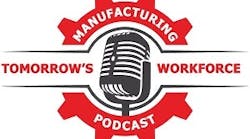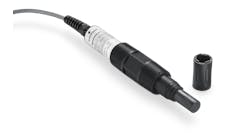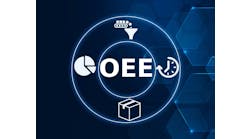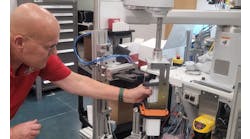How Dr. Jennifer van de Ligt is helping transform the food & beverage workforce into the leaders of tomorrow
Dr. Jennifer van de Ligt wants to help the future generations of leaders evolve from siloed-skilled doers into problem-solving thinkers. As the head of the University of Minnesota's Integrated Food Systems Leadership program, she helps professionals bridge the gap between traditional education and professional leadership. In this episode, Dr. van de Ligt explains why critical thinking is important now more than ever for the food and beverage industry and how future leaders can help create a sustainable future for our food system.
Transcript
Amanda Del Buono: Welcome back to Putman Media’s Manufacturing Tomorrow’s Workforce. I’m Amanda Del Buono, and for this episode, I’d like to introduce Erin Hallstrom, creator and co-founder of Putman Media’s Influential Women In Manufacturing recognition program and director of digital strategy for Food Processing magazine. Erin will be conducting today’s interview with Dr. Jennifer van de Ligt, director of the University of Minnesota’s Integrated Food Systems Leadership Program.
Here’s their discussion.
Erin Hallstrom: With every morsel of food you put in your mouth or every beverage you consume, do you ever stop and think about the people, processes, ingredients or the entire ecosystem it took to bring that product to market? Jennifer van de Ligt wants to change the way you think about the world of food and beverage production. More specifically, she wants to help transform the incoming workforce from siloed skilled doers into problem solving thinkers, and she’s doing so through the University of Minnesota’s Integrated Food Systems Leadership Program.
Regardless of the industry, Jennifer offers great advice in this podcast about leadership, personal and professional development, for those entering the workforce or those who have been in the workforce for a while. She also includes words of wisdom to human resource professionals that are hiring for the workforce of tomorrow.
With that, let’s talk to Jennifer.
Jennifer, can you talk to me about the evolution of your career? What brought you to where you are now?
Jennifer van de Ligt: So, Erin, before I came to the University of Minnesota, I spent in and around 20 years in the food industry, and what I learned there is that when people graduate and enter the workforce out of university, they are really incredibly skilled at what they do. But in my experience in industry, I learned that people needed a little more than that. As I transitioned my career out of the food industry and actually in to academia at the University of Minnesota, I had the opportunity to really think and build a program that would help people think much more broadly about the food system.
EH: Very good. One of your specialties is about the leadership skills in the food and beverage manufacturing area. Are there a special set of skills that a food and beverage leader might need that we might not see in say discrete manufacturing?
JV: Sure, so there are a lot of similarities and differences between food manufacturing and say more industrial manufacturing. So, if you think about just your typical cell phone, it has a global supply chain, they’re in search of innovative new products, they really think about quality. The difference with food is we eat it. So, everything we produce, not only is it global and innovative and high quality, but it has to be absolutely safe for the consumer to ingest. The thing with food systems is remember I said global supply chain? We’re actually dependent on food systems from every country where our food is sourced, and today, our food is not just sourced in the U.S., not just local. We use food ingredients from around the world in almost everything we eat. Also, with food production being dependent on the environment, we really have to think about how things like climate change and weather are impacting the availability and safety of food we eat.
So, if you’re a leader in that food and beverage space, as compared to the discrete manufacturing space, you have to think about the complexities of this changing food system, and really think about the intricacies of this global supply and this relationship with the environment that food has, so that we can create safe food all the time.
I have an example, would you like to hear an example?
EH: Yes.
JV: OK, so let’s pretend that your company is going to make beer cheese chips. Believe it or not, that’s a new product that’s on the market. So, if you’re a leader of tomorrow, you know, beer cheese chips, how hard could it be to make beer cheese chips? But have you stopped to think about how your chip sales projections are going to change the demand for potatoes? Have you thought about the flavoring or cheese components? Where they’re made, how you’re going to source them? Are they even approved food ingredients for use in those chips? How will that flavor addition change your manufacturing process? Will you need a different manufacturing process to add that flavor? Because you’re incorporating these new flavors and these new cheese components, how does that change the food safety paradigm of your chips? Will your consumers like it? Will they even eat the beer cheese chips? And how are you going to label it, how are you going to advertise, what’s your market?
All of those are sort of food system things that typically in the past, you would have individual groups within a company with very specific expertise answering each of those questions. But, at the end of the day, what happens if you’re ready to go to market and then you find out that your ingredient can’t be used in chips? What happens if you almost get to market and then you do the taste test and realize your consumers don’t like the flavor? Next-generation leaders will actually start to think more holistically and be able to ask those questions proactively in real collaborative teams to help bring those products to market much
EH: Great, and now I’m hungry for some beer cheese chips. It’s a two-for-one answer right there. Younger folks out there, let’s get on that. The beer cheese chips. So, one of the tenants I noticed with your program focuses on problem-solving skills. Can you elaborate, or elaborate even more, on why it’s essential to develop good problem-solving skills?
JV: Sure, so when we think about food and beverage, and for the overall food system there are a lot of issues and complexities that exist in that world right now. You know, the first one is we’re going to reach close to 10 billion people by the year 2050. We only have about 7 billion people in the world right now. So, we’re going to have to figure out how to feed a lot more people in a very short amount of time, and we have to do it while we protect our planet. And, not only are we going to have to feed more people, but unfortunately, undernourished people have been on the rise since 2014, and there are over 800 million people around the world that are currently considered undernourished. So, we have to think that’s the biggest problem we face.
So, how can we feed this fast-growing population, and at the same time, make sure that we have really safe food and that we’re controlling things like food waste. Specifically, for the food industry, we really need people who can think broadly and are really empowered to navigate these complexities. People that can think beyond their own specialty or silo where they were trained or where they currently work and that are really open minded and can function in that cross-disciplinary way. This will help not only them grow personally, but it’s going to result in business growth, it’s going to result in population well-being, it’s going to result in food production, it’s going to help us achieve sustainable food production.
So, when you think about how most professionals were hired for very specific knowledge areas, those problem-solving skills are going to help them think more broadly about how the food system is really global and interconnected, so that we’re all working together to solve these really big issues and produce ripple effects in a positive way across the food system.
EH: Very good. As a follow-up to that, and for our younger podcast listeners out there, what are some examples of problems that they might need to solve?
JV: So, when you think about younger workers in the industry, our younger workers are really coming with a lot of ideas and skills, many of which aren’t being leveraged. Those younger workers, they often feel like they’re not being heard, or that they’re being sort of pigeon holed into one segment or role in the business. And that silo mentality, and sometimes a lack of culture of learning and growth, can really have profound effects in the industry, both personally for that worker, but also for the business.
So, one of the things that I would say for the younger workers are to embrace system thinking. Learn how to sort of think outside the box. Learn how to take what you know, and think how is it going to help my friend who works in a different department? How can I communicate better with that business leader so that he learns to understand me, or I understand him, and we can communicate better with him. And this is not necessarily just so that you can go get that next promotion, sometimes it’s to open up moves that are sort of lateral in the department, in the business to think outside the box, so that you have those growth opportunities to enhance your career and provide that broader benefit to the entire business.
EH: Very good. So, one of the things I want to ask is when it comes to leadership and leadership roles, what sort of steps can people take to develop their leadership skills?
JV: That’s a great question, Erin. One of the things that I want to start with is the difference between leadership and management. So, some people think that leadership is watching your team and making sure that the people are doing what they’re supposed to be doing. That’s not leadership, that’s management. That’s really not what leadership is.
To be a leader means you need a vision, and that when you have that vision, you can paint a clear picture of what you’re seeing so that others understand it. Leaders actively build relationships. Maybe you can’t turn that vision into a reality, but you can lead someone else to help you turn that into a reality. Leaders aren’t afraid to challenge the status quo and takes risks if it’ll help the long-term plan. Leaders are those people that can help their team achieve more than any individual on that team thought was possible. But to be that leader, first they have ideas that need to be heard, but they can’t get them heard unless they know how to communicate. Learning how to communicate and package that vision and that change and that way to move forward effectively is critical to leadership development.
Second, leaders really want to have a meaningful impact in the world, and for any of the listeners out there, even if you want to have that meaningful impact in the world but you don’t think that you’re a leader, because you want to have meaningful impact, you are a leader and you have the potential to become a leader. So, think about that bigger picture and learn sort of what the interdependencies are throughout that food system that are really important to helping your impact move forward. Think about how to help other people hear what your plan is and foster that collaboration and the innovation within the teams that you work on and even across disciplines, so that everyone can succeed.
Third, you know leaders want their companies or their teams to grow, but you really also want to grow personally. So, those leaders when they create that vision and they take steps to pave the way for that vision to come to fruition, they know, those leaders know, that the journey embarked upon is life changing and the welcome that change. So, it’s always about growth and figuring out how to be better and leading people to be better.
And finally, it’s important to note that leaders are not just in the corner office, they’re not just the CEOs. Leaders come in every shape, every role and every title. The leader’s potential and style, you just need to embrace it in whatever capacity it is that they work in today. There is a leader on every team, in every department and in every work group across the business, and figuring out if you’re one of those leaders, or finding those emerging leaders in your business and helping them grow and foster their potential, is the real challenge.
EH: It sounds like it. What advice would you give to those entering the workforce right now or those who have just entered it, so your recent graduates and what have you?
JV: Great. So, when you think about folks that are entering the workforce right now, one, embrace your strengths. Know what you’re really good at, but don’t keep yourself in that silo. Consider when and how the things that you’re really good at, why you’re entering the workforce today, how can you use that more broadly across the system? So, think about the food and the beverages that you’re working on, or the ingredients your working on, or the part of the food system that you’re working on, and think about how it’s connected to other parts of the system. And we know in the food and beverage sector, the work that we do, effects the health and the well-being of every person on this planet, so we also have to think about those people. And particularly in the U.S. right now, consumers are increasingly aware and sensitive to the activities of food companies. Consumers are demanding levels of transparency about food production that have never been seen. So, understanding your role and how the food and beverage companies are changing the way they do business to provide that transparency to consumers is really important.
And the other thing about those folks that are entering the workforce now is the food industry is changing faster today than it has ever changed in the past. In fact, to feed those 10 billion people by 2050, we’re going to have to change the way we manufacture food and produce and grow food almost to the same extent as the entire agricultural revolution that preceded us. So, know that when you’re going into this, you have an amazing ability to influence change, to influence that consumer perception, to go in new and unique ways, but the key to that is understanding how the different parts of the food system connect with one another.
EH: Alright. Well, so on the flip-side of that, what advice would you give to those that are hiring the incoming workforce?
JV: So, it’s really similar. Look for those people that can think in those holistic ways, that understand what some of those interdependencies are, that are creative and thought provoking, communicate well, that understand how their role and their specialty relates to not only the food system and environmental concerns, but also the consumer mindset. Look for people that are prepared to solve challenges, and also look outside your traditional programs, because there are a lot of different ways that you can find really skilled technical people that can help your business move forward.
EH: Very good. So, we are near the end of our podcast here. I wanted to give you the opportunity if you have any last parting thoughts, it you wanted to plug anything that you’re working on. The last couple of minutes are yours, would love to hear what else you have to say.
JV: Yeah, perfect Erin. So, I talked a lot about leadership and a lot about how universities and new leaders or new workforce members are really good in really small areas. One of the things I learned over my career in industry, and that is really important, is learning how to make that connections and those bridges between what you’re doing and what your specialty is, and understanding the broader context in where you’re working. And so, the Integrated Food Systems Leadership Program, which is what I direct, is one of those programs we created at the University of Minnesota to really help those early and mid-career professionals, those emerging leaders that are in that food and beverage space. And we really focus on helping them learn how to take their specialty area but create the bridges and connections and the relationships and the collaborations to think more holistically, to grow personally and professionally, and to that that knowledge and those leadership skills back into their business to help their business relationships achieve more, better, faster, more efficient. So, I would encourage you, if you’re interested at all in becoming that better leader to look us up. We’re the Integrated Food Systems Leadership program. It is a graduate level certificate at the University of Minnesota. It is different than many certificates in that you actually earn college credit that can be applied to a future Master’s degree. If you’d like to learn anything else about it, visit us at ifsl.umn.edu for more information. We are currently accepting applications for our 2020 cohort.
EH: sounds great. Well, Jennifer, it has been an absolute pleasure talking to you today, and I’m excited to hear more about you and the program in the future. Thank you so much for joining me today.
JV: Thank you.
AD: That was Erin’s interview with Jennifer van de Ligt, director of the University of Minnesota’s Integrated Food Leadership Program. Thanks for joining us today, and stay tuned for the next episode of Manufacturing Tomorrow’s Workforce in two weeks.
Latest from Asset Management

Leaders relevant to this article:



